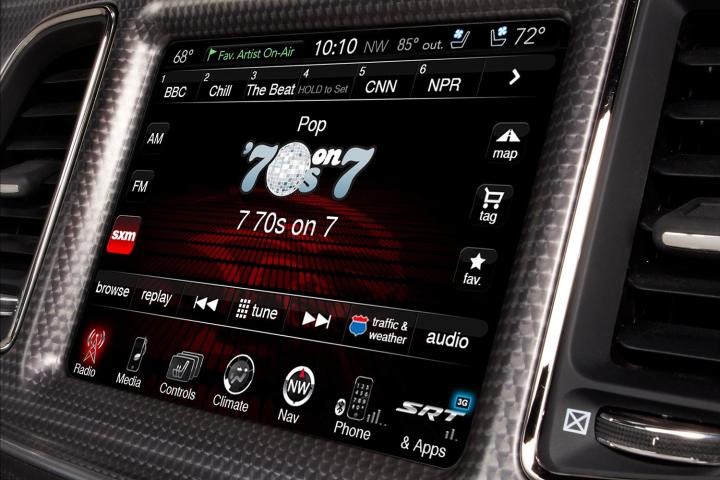
Billed as a simple concept, the experimental Uconnect system is powered by 7.0 Nougat, the newest version of Android. FCA explains 7.0 Nougat is the perfect starting point for an automotive infotainment system because it already includes core features such as a radio and comfort controls.
Another advantage is that linking Android and Uconnect creates an infotainment system that’s easily compatible with popular smartphone applications that motorists already use on a regular basis. These include Google Maps and Google Assistant, but the Nougat-powered Uconnect system can also seamlessly integrate popular Android applications like Pandora, Spotify, NPR One, and Pocket Casts.
At CES, the concept will be demonstrated on an 8.4-inch touchscreen found inside of a Chrysler 300. It won’t remain a concept for long, and FCA engineers have already joined forces with members of Google’s team to develop the next generation of the Uconnect infotainment software that will equip millions of cars around the world.
The collaboration benefits both partners. On the one hand, FCA will be able to offer one of the industry’s most advanced infotainment systems. On the other hand, Google will be able to expand into the auto industry, a move it’s been working on for several years with programs such as Android Auto.
“Google is committed to building Android as a turn-key automotive platform that integrates deeply with the vehicle in a safe and seamless way,” explained Patrick Brady, Google’s Director of Android Engineering, in a statement.
The tech giant’s may never build a car from scratch, but its ties to the auto industry likely won’t stop at the collaboration with FCA. Neatly integrating applications is something automakers have been trying to accomplish for years, and Google openly states it’s willing to work with other companies on infotainment technology.



